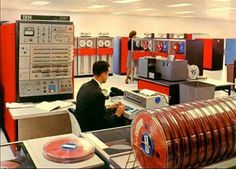I try not to use the word “never.” Not ever. That term will almost always eventually be wrong, even if we’re not still around when our serious theories become laugh lines.
Paul Mason embraces this dangerous word in a Medium essay, arguing that “maybe the economy never recovers.” Wow, that’s a big statement.
But Mason needn’t be right forever. If salaries are depressed for too long and wealth inequality grows too wide, we can see serious social fraying, even collapse. That may not be plausible, but it certainly is possible if the levers of change–protests, unions, legislation, etc.–fail.
If new and better jobs emerge that replace those disappeared into the zeros and ones, that’s fine. But not everyone who’s a truck driver can become a Self-Driving Car Engineer. In fact, it’s tough to believe any of those engineers will be needed soon enough. Machines should be able to engineer the machines. Neither will it be necessary for long for autonomous taxi and truck companies to have owners. With a few modifications, they can be self-sustaining outfits.
Even if good jobs not prone to automation surface in the long-term future, it will be awfully difficult to get from here to there without significant policy changes. As Mason notes, positions are being automated “faster than new work can be invented.”
The essence of his answer is that we need to “actively [promote] automation, but at the same time…end reliance on wages for work.” Universal Basic Income, he believes, should be used to support those doing healthcare and environmental work, for instance, those jobs being uncoupled from capitalism.
Mason believes we’re in the early stages of a “500-year event,” but I’ll bet like with everything else in today’s souped-up society, the action and reaction will occur in a much briefer time frame.
An excerpt:
Capitalism is failing to adapt
So how could one of the greatest technical leaps forward ever be causing something bad in economics?The answer is — there’s something unique about information technology, which suppresses capitalism’s capacity to adapt.
When the system is in big trouble, over the past 240 years it usually adapts. It morphs radically, so that the old generation look at it and say — “this can’t be capitalism”. Usually when it adapts, it creates a new synthesis between technology and society — so you get the factory system in the 1800s, you get railways plus heavy engineering in the 1850s, you get the scientific management revolution before the first world war; you get the science-led postwar boom of 1948–73.
I think the problem is: the new technology is suppressing the economy’s ability to adapt.
Let’s think about what normally happens. Old jobs are automated, but new jobs replace them, with higher wages. New commodities command higher prices. Carlota Perez calls this the techno-economic paradigm and each time it’s happened so far it produces an economy based on higher value: higher wages, higher prices, higher living standards.
But information disrupts this process in three ways: in its effect on work, and its effect on ownership, with the emergence of new models of sharing and collaboration.•
Tags: Paul Mason

